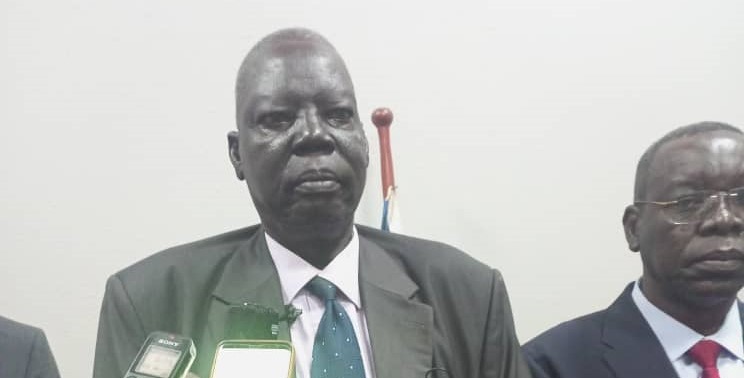Justice and Constitutional Affairs Minister Ruben Madol Arol on Wednesday said concerns were being raised over South Sudan’s decision to extend its transitional period by two years.
Briefing journalists upon his return from Geneva, Switzerland, Arol, however said many UN member states recognized the challenges South Sudan faces and called for international support.
“The council meeting included oral statements regarding the human rights situation and political developments in South Sudan,” Arol explained.
“We talked about issues like the transitional period extension, mobile courts, and special tribunals addressing intercommunal and gender-based violence.”
He said the meeting also drew attention to the troubling provisions in South Sudan’s National Security Act that permit arrests without warrants, raising alarm among human rights advocates.
Amnesty International has emphasized the urgent need for enhanced scrutiny of the human rights landscape in the country, asserting that mere technical assistance is inadequate in addressing ongoing violations.
In a statement to the UN Human Rights Council, Amnesty criticized the South Sudanese government of repeatedly failing to uphold its commitments to human rights protections.
“Technical assistance alone is insufficient; what we need is accountability and sustained international oversight to safeguard human rights,” the organization stated.
Amnesty International pointed to the government’s lack of political will as a fundamental barrier to progress in human rights.
The organization concluded with a strong call to member states to go beyond mere support and advocate a comprehensive approach that includes extending and strengthening the mandate of the Commission on Human Rights in South Sudan during its upcoming renewal.




